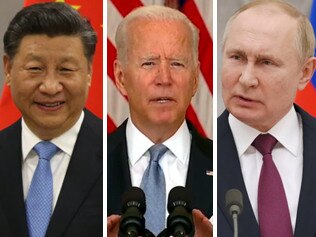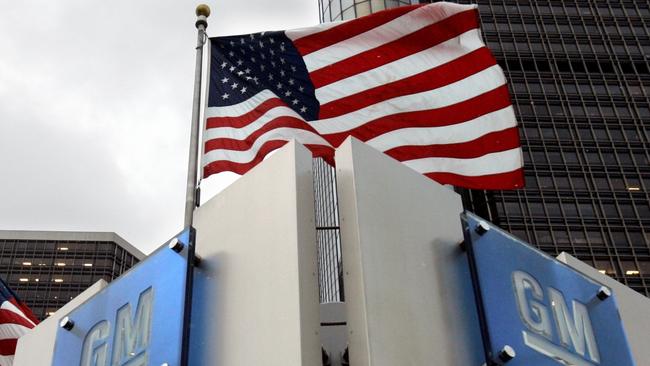Biden bans Chinese car tech in explosive crackdown over national security concerns
The US has taken drastic action to prevent the rising ‘threat’ of China and Russia with a landmark decision.
Motoring
Don't miss out on the headlines from Motoring. Followed categories will be added to My News.
The US has finalised a ban on Chinese and Russian technology in vehicles due to national security concerns.
The new regulations, first proposed in September, will prevent Chinese technology from being used in vehicles sold in the US, with software restrictions taking effect from the 2027 model year and hardware bans starting in 2029.
The ban will also restrict Chinese car companies from testing self-driving cars on US roads.
China is the world’s largest auto exporter and ranks in the top three for US automotive part suppliers.
US Commerce Secretary Gina Raimondo explained the new rules would apply to cars manufactured in the US if they contained a “suffice nexus” to China or Russia.
“This is a targeted approach to ensure we keep [the People’s Republic of China] and Russian-manufactured technologies off American roads,” she said.
MORE: Shock EV move: Chinese giant blacklisted

MORE: ‘Loaded gun’: China deal fears after blacklist
“Cars today aren’t just steel on wheels — they’re computers.”
Raimondo said the country must act to avoid a national threat.
“It’s really important because we don’t want two million Chinese cars on the road and then realise … we have a threat,” Commerce Secretary Gina Raimondo told Reuters in an interview.
The proposed crackdown was flagged in September and aims to protect US infrastructure from surveillance risks.
The ban targets modern vehicles equipped with cameras, microphones, GPS tracking, internet connectivity and can be used to exploit data.
Security experts and researchers have highlighted modern vehicles as susceptible to hacking.
A 2024 report found hackers could use fault injection on a vehicle’s connectivity system processor to simulate a jailbreak and install malware.
The new rules excluded vehicles that weigh more than 10,000 pounds (4536kg).
However, a final decision on trucks and buses will be up to the Trump administration after they take power later this month.
The department said the bans would not affect Chinese software developed before the new rules took effect, as long as the software was not being maintained by a Chinese firm.

This means automakers such as General Motors and Ford could potentially continue to import Chinese-made vehicles.
However, automakers including GM, Toyota, Volkswagen and Hyundai have expressed concerns about the timeline and are seeking additional time for compliance.
The Alliance for Automotive is seeking a one-year extension, while Honda and the Consumer Technology Association are seeking a two-year delay.
The move follows a long list of trade actions against Chinese imports.
In September, the Biden administration imposed steep tariff hikes on Chinese electric vehicles (EVs) and increased tariffs on EV batteries.

Just last week, the Pentagon black-listed Chinese battery giant Contemporary Amperex Technology Co. (CATL) over alleged ties to China’s military.
President-elect Donald Trump is set to take office on January 20, Trump has vocalised his views on Chinese imports but expressed openness to Chinese automakers building plants in the U.S.
“We’re going to give incentives, and if China and other countries want to come here and sell the cars, they’re going to build plants here, and they’re going to hire our workers,” Trump told Reuters October last year.
“We will make our own cars. I want to make our own cars.”
Originally published as Biden bans Chinese car tech in explosive crackdown over national security concerns




